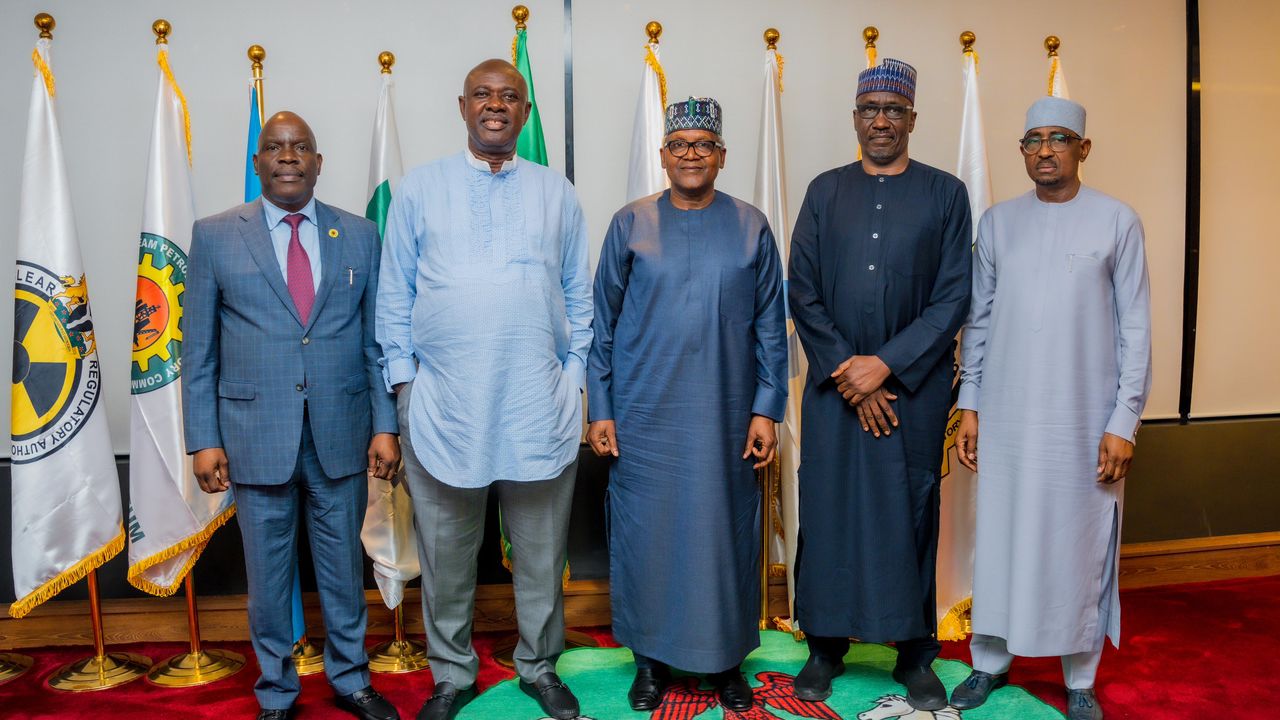Oil Cabal: FG settles Dangote, NNPC, NMDPRA
The recent crisis surrounding the Dangote Refinery has drawn significant attention from stakeholders within Nigeria’s oil and gas sector. In response, Heineken Lokpobiri, Minister of State Petroleum Resources (Oil), convened a high-level meeting aimed at resolving the issues and ensuring the smooth operation of this critical infrastructure. This article delves into the details of the meeting, the key players involved, and the implications for Nigeria’s energy security and economic growth.
On Monday, a crucial meeting was held in Abuja, spearheaded by Minister Lokpobiri, to address the ongoing disputes affecting the Dangote Refinery. Key figures present at the meeting included Aliko Dangote, Chairman and CEO of Dangote Group; Farouk Ahmed, CEO of the Nigerian Midstream and Downstream Petroleum Regulatory Authority (NMDPRA); Gbenga Komolafe, Chief Executive of the Nigerian Upstream Petroleum Regulatory Commission (NUPRC); and Mele Kyari, Group Chief Executive Officer of the Nigerian National Petroleum Company Limited (NNPCL).
The Core Issues
Equity Stake Controversy
A primary point of contention involved the equity stake held by NNPCL in the Dangote Refinery. Aliko Dangote asserted that NNPCL’s stake had been reduced from 20% to 7.2% due to non-payment of the balance for its shares, which was due in June. In contrast, NNPCL maintained that this decision to limit its equity participation had been communicated to the Dangote Refinery months prior.
Licensing and Compliance Disputes
The NMDPRA raised issues regarding the refinery’s licensing status, claiming it was still in its pre-commissioning stage and that its diesel production did not meet international standards. Dangote vehemently denied these allegations, stating that the refinery’s operations and product quality were compliant with the required standards.
Crude Oil Supply Challenges
Another significant issue highlighted by Dangote was the alleged obstruction by International Oil Companies (IOCs). He accused these companies of selling crude oil to the refinery through their foreign trading arms at inflated prices, two to four dollars per barrel above the official NUPRC price.
Minister Lokpobiri emphasized the necessity for cooperation and synergy among all stakeholders to resolve these disputes. He underscored the importance of the oil and gas sector in driving Nigeria’s economic growth and ensuring energy security. The minister’s timely intervention facilitated a dialogue that demonstrated a collective commitment to collaborative problem-solving.
Economic Growth and Energy Security
The successful resolution of the Dangote Refinery crisis holds significant implications for Nigeria’s economy. The $20 billion refinery, with a refining capacity of 650,000 barrels per day, is poised to transform Nigeria’s oil sector by reducing reliance on imported fuel and boosting local refining capacity. This, in turn, will enhance energy security and contribute to economic stability.
Also Read: Aliko Dangote Offers to Sell Oil Refinery to Federal Government-Owned NNPC
Stakeholder Synergy
The meeting highlighted the importance of stakeholder synergy in overcoming challenges within the oil and gas sector. The cooperative spirit demonstrated by the stakeholders, guided by Minister Lokpobiri’s leadership, sets a precedent for addressing future industry issues through dialogue and collaboration.













